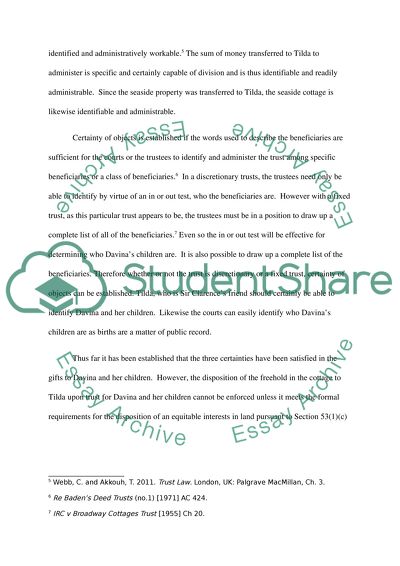Cite this document
(“Equity and Trusts (England and Wales) Essay Example | Topics and Well Written Essays - 2000 words”, n.d.)
Retrieved from https://studentshare.org/law/1442329-equity-and-trusts-england-and-wales
Retrieved from https://studentshare.org/law/1442329-equity-and-trusts-england-and-wales
(Equity and Trusts (England and Wales) Essay Example | Topics and Well Written Essays - 2000 Words)
https://studentshare.org/law/1442329-equity-and-trusts-england-and-wales.
https://studentshare.org/law/1442329-equity-and-trusts-england-and-wales.
“Equity and Trusts (England and Wales) Essay Example | Topics and Well Written Essays - 2000 Words”, n.d. https://studentshare.org/law/1442329-equity-and-trusts-england-and-wales.


